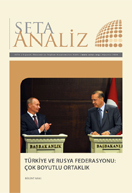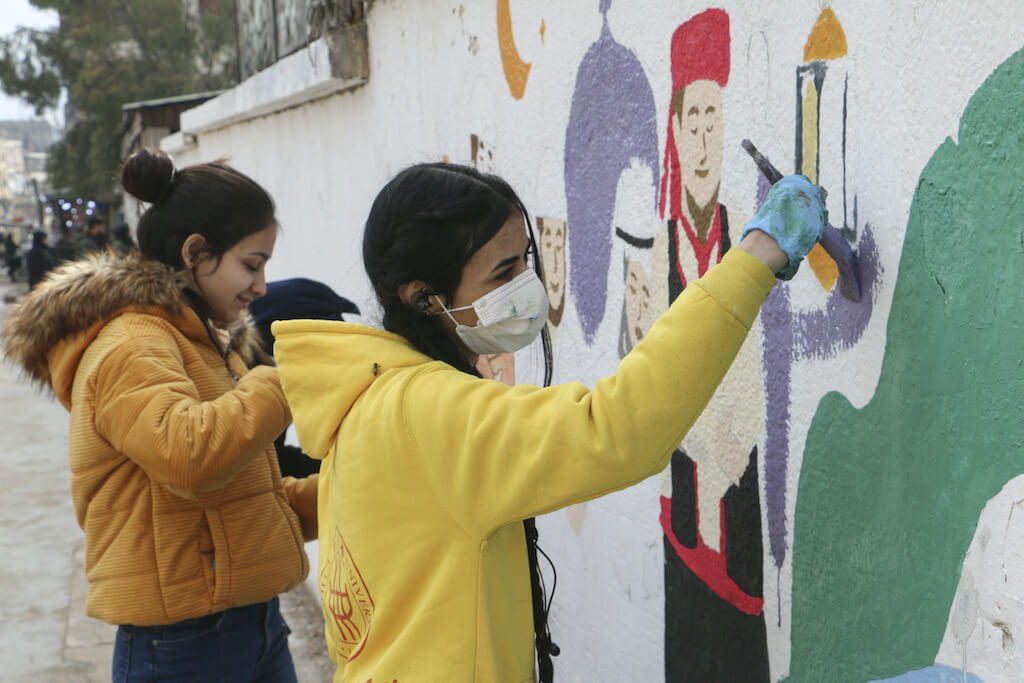The birth pangs of a new human geography and geographic imagination are being felt across the Middle East. As the ethnic and sectarian models of cultural and political identities are being questioned, new patterns of cultural affinity and association are emerging with a new sense of shared history and common geography.
The events in Gaza and the Davos incident point to a major reshuffling of geographic boundaries and national borders. Seeing Turkish flags in the streets of Gaza and Palestinian flags on Turkish streets is just one example of this. Another key area this trend is likely to have an impact on is Iraq.
A recent conference in Arbil, the capital of the Kurdistan Regional Government (KRG) of Iraq, took up the issues between Turkey and the Iraqi Kurds. The conference, organized by the Abant Platform and entitled "Searching for Peace and a Future Together," brought together over 150 intellectuals, academics, writers, journalists and civil society representatives from Turkey and Iraqi Kurdistan. This conference is the first of its kind and already points to a process of normalization concerning the Kurdish issue. In his opening remarks, the governor of Arbil welcomed the delegation from Turkey and expressed his hopes for the further deepening of relations between the KRG and Turkey. Hüseyin Avni Botsali, the Turkish consul general in Mosul, described Turkey as Iraq's gateway to Europe and emphasized the strategic significance of improving relations between Turkey and the Iraqi Kurds. This is an important point and it was appreciated by the Iraqi Kurds, too. But the long-term relationship between Turkey and the Iraqi Kurds goes (and must go) beyond the EU context. While Turkey's EU membership is of vital importance for Turkey, its neighbors and relations between the Muslim world and Europe, Turkey needs to cultivate new relationships and partnerships based on the historical and geographical space that it shares with its neighbors. This is true for everyone from the Balkans to the Middle East. This is a geography composed of numerous ethnic and religious groups. This is certainly an asset and underscores the rich diversity of the region. This very fact, however, also poses challenges. Reaching out to different groups in the region runs the risk of inflaming new micro-nationalisms. It would be opening up Pandora's box if each and every group in the Middle East began to assert its ethnic identity in opposition to other identities and social groups. Such a development would not only pit different groups against one another, but also go against the process of regional integration. Turkey committed this mistake back in the 1990s in Iraq when it invested in the Iraqi Turkmens as a group separate from the Iraqi national political and social scene. At the same time, Turkey neglected the Iraqi Kurds because of its own Kurdish problem. This led to an environment in which supporting the Turkmens meant taking a position against the Iraqi Kurds. Today a reverse situation seems to be emerging: Engaging the Iraqi Kurds is seen by some as betraying the Iraqi Turkmens. Turkey has already lost many years in the region and now it is time to catch up. Turkey must act more decisively and with confidence in order to improve its political, economic and cultural relations with the Iraqi Kurds, as well as with other Iraqis. The national borders of Iraq and Turkey should not be a barrier to bringing Turks and Kurds closer to one another. The human and cultural geography of the region goes much deeper than the artificially constructed nation-state borders of the 20th century. One symbolic but also politically important step is for Turkey to open up a consulate in Arbil. There is already a consulate in Mosul headed by the outstanding Botsali. A Turkish consulate in Arbil would not only make life easier for thousands of Turkish and Kurdish businessmen and civil society representatives, but also send a positive message to the Iraqi Kurds. Given the fac








